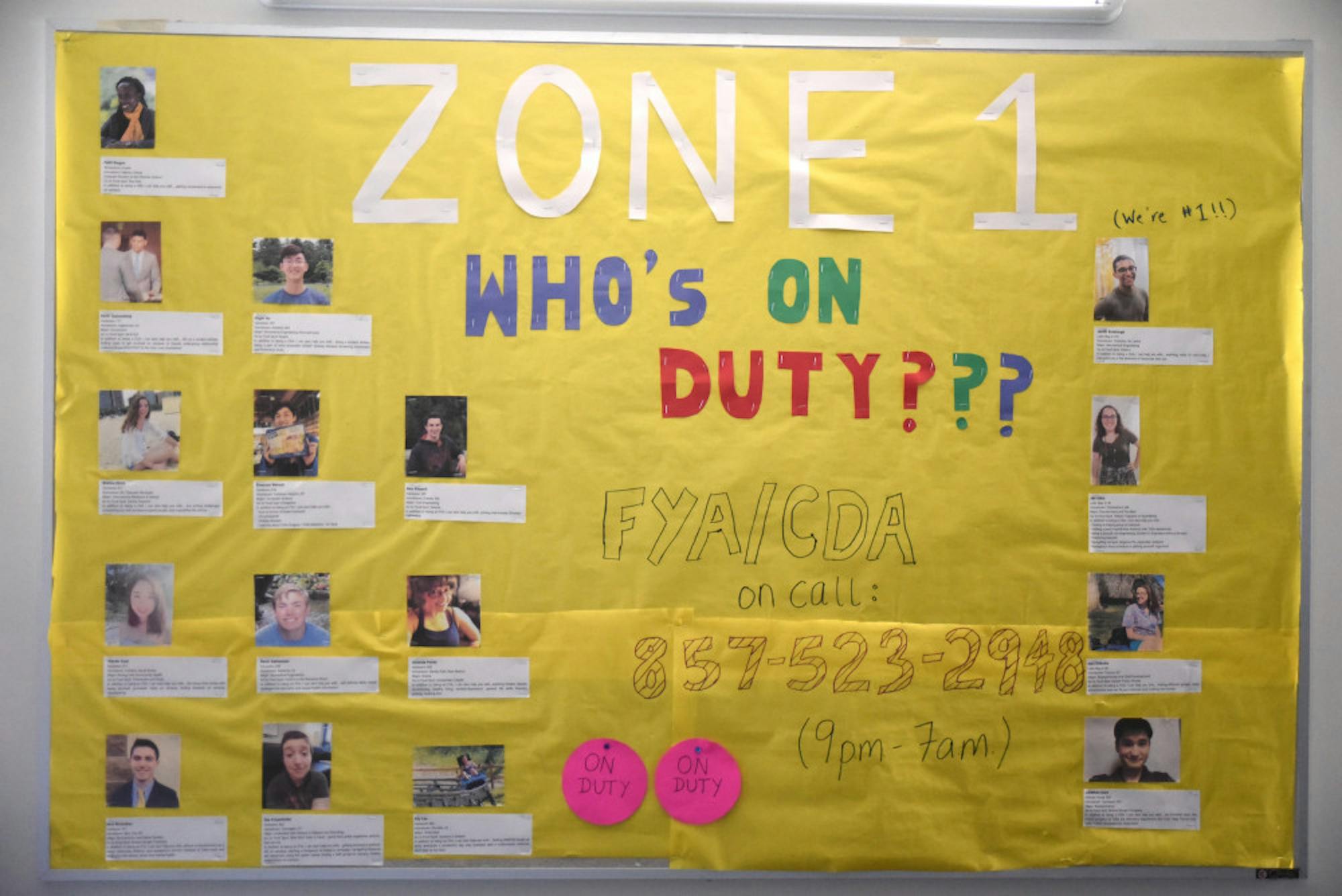This past summer, 248 first-year and new students signed up to participate in Tufts' Mentor Collective, according to Associate Dean for Student Success and Advising Robert Mack.
The Mentor Collective is a program run by the university that connects students who, for the most part, do not participate in a pre-orientation program and/or who identify as first-generation college students (first-gen) with staff members in the Office of Residential Life and Learning (ResLife), Mack said.
Although the program started two years ago, this summer marked the first year students were paired up based on where they were assigned to live on campus, according to both Mack and YooJin Yoon, a first year assistant (FYA) in Harleston Hall this academic year who served as a mentor last year. When the Mentor Collective began, first-year and new students were assigned a mentor based on what they were interested in, Yoon, a junior, said.
According to Mack, the Mentor Collective allows first year assistants and new students to discuss expectations about the upcoming academic year prior to classes starting.
He explained that students who did not plan on attending a pre-orientation program and/or who identified as first-gen were all invited to sign up for the Mentor Collective this past summer. However, if a student wanted to be assigned a mentor and participate in a pre-orientation program, efforts were made to accomadate this request.
This past summer, 902 incoming first-year and new students participated in pre-orientation, of which 88 identified as first-gen, while 254 signed up to participate in the Mentor Collective, according to Mack.
The Office for Student Success and Advising (OSSA) created the program last summer under Mack’s leadership, after receiving feedback from students who had not participated in a pre-orientation and expressed feelings of isolation once they arrived on campus, Mack said.
“I think that the inspiration behind this program was thinking about the opportunity to make sure every student felt that they were connected to some other student at the university so when they arrived on campus for orientation, they would have a contact or a touch point for their transition,” he said. “Certainly, we’ve heard from students throughout their time who felt that they had started orientation and didn’t feel as connected as some of their peers who they saw engaging with other friends.”
Yoon explained that, in preparation for mentoring first-year and new students, FYAs underwent an hour-long training led by a representative from OSSA in addition to the general ResLife training. While mentors did not receive specific training related to supporting first-gen students, they did receive a general awareness training.
“[The training] talks about diversity, culture, socioeconomic background. [Awareness] was a reoccurring topic throughout the FYA and [community development assistant] training so it wasn’t just like one moment or one hour they tell you, ‘Hey just be aware,'" Yoon said. "It was more like continuously telling us to be aware of these things as we go through our duties or as we interact with our residents."
Associate Director for Residential Education Sarah D’Annolfo reiterated the importance of continuously having conversations related to diversity and inclusivity with student leaders throughout the year.
“Through training offered at the start of the school year and, throughout the year in bi-monthly department meetings, individual, hall and zone meetings, FYAs share and learn about how to best support individuals and support inclusive communities in the halls," D'Annolfo told the Daily in an email.
In addition to attending a mandatory training, mentors were expected to reach out to their mentees via text message or email and arrange at least two Skype calls, one in July and one in August, according to Yoon.
“[Last year,] I got matched with three mentees over the course of the summer. I reached out to them to tell them about who I was, what my interests are and what I was studying, and then they would respond and say what they were interested in," Yoon said.
To better prepare mentors to speak with students about resources available to them on campus, the university has used software from Shearwater, a company focused on student development programs, since the collective’s inception, according to Mack and Yoon.
“Shearwater ... supported us with data, which [includes] outreach, contact hours and people who aren’t responding ... If an FYA wants to talk with a student about a particular topic, they have a curriculum ... related to the topic of interest,” Mack said.
Yoon explained she has found the curricula provided by Shearwater to be useful in discussing financial resources and stress-management on campus. However, she also felt that improvements could be made to the software.
“I like how there’s a specific website for you to log on to and see who your mentees are and what you guys should talk about [through] the modules,” Yoon said. “Other than that, I felt uncomfortable reporting every interaction I had with my mentees. It asked me questions like how long did you guys talk for, what did you guys talk about, are they having a hard time, are they having a good time at Tufts.”
Yoon sees the collective as absolutely necessary going forward.
“Coming in as a freshman and not knowing anything or being concerned, especially for first-gen or low-income students, I think it’s a good thing to match with someone with similar backgrounds so that you feel comfortable and so that you feel that you’re in a safe space to be able to ask questions you wouldn’t be able to ask elsewhere,” Yoon said.
Tufts continues mentoring program for non-pre-orientation participants and first-gen students

A poster of profiles of FYAs and CDAs on the wall inside Harleston Hall is pictured here, Sept. 12, 2017. Tufts has changed its peer mentoring collective program since this summer.





